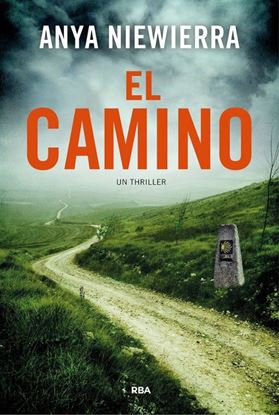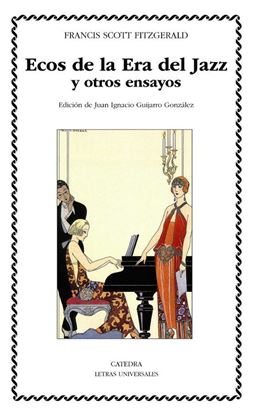

MI QUERIDA LUCIA - PRIMERA EDICION LIM.
La primera impresión de Mi querida Lucía es una preciosa edición limitada en tapa dura con sobrecubierta en acabado soft touch luminiscente. Una vez expuesta al sol, permite que se resalten elementos destacados de la cubierta, lomo y sobrecubierta en la oscuridad.
Además, esta edición contará con dedicatoria manuscrita impresa de la autora en su interior.
Aquel sofocante verano de 2002, Lucía Romasanta, astróloga, madre soltera y redactora de la sección del horóscopo con más éxito del país, recibe una perturbadora carta de un admirador anónimo. Un texto manuscrito que la hace directamente responsable de la muerte de una desconocida en caso de que no tome partido.
1,250
938
LUNA ROJA
Madrid, 1954. La joven Margot Sanz Peters regresa a España después de formarse en Londres como periodista de moda. Miembro de una distinguida familia de diplomáticos y amiga íntima de las damas más elegantes de la época -desde Cayetana Fitz-James Stuart hasta Aline Griffith, la futura condesa de Romanones-, la reportera accede rápidamente a los círculos más exclusivos de una ciudad que ha dejado atrás los peores años de la posguerra y empieza a abrirse a la modernidad.
Pero Margot es mucho más que una experta en moda. Lectora voraz de las novelas de Sherlock Holmes, desde niña ha sentido fascinación por la mente criminal. Por eso, cuando el enigmático asesinato de una marquesa sacude a la alta sociedad madrileña, nuestra protagonista dará el salto a la revista de sucesos más popular del momento y comenzará a colaborar con la policía, poniendo así a prueba sus dotes de investigación en un juego cada vez más peligroso.
1,250
938
EL CAMINO
La chocolatera Lotte Bonnet vive feliz en el sur de Limburgo con su marido Emil, un exrefugiado de Bosnia. Tras el cáncer que su esposo acaba de superar, nada la prepara para la noticia que está por llegar: Emil se ha suicidado mientras hacía el
Camino de Santiago para celebrar su recuperación.Todavía devastada, once meses despues Lotte viaja a Bosnia con la intención de esparcir las cenizas. Allí descubre que Emil mintió sobre su identidad. Llena de preguntas, decide hacer el Camino ella misma, según la ruta y la planificación de Emil. Quiere saber que lo impulsó a cometer ese acto de desesperación. Pero alguien la sigue, alguien que no quiere que descubra la verdad.
1,250
938
EL CASO PARIS
Sylvie Dubois, una chef francesa, es enviada a París para espiar al enemigo, como parte de la resistencia. Por su parte, Christoph Baumann, un soldado alemán, está dispuesto a hacer cualquier cosa para salvar a su hermana.
A medida que la chef y el soldado se conocen y son capaces de ver más allá de sus uniformes, la guerra parece desaparecer para ellos. Sin embargo, en un mundo enfrentado, el amor puede ser muy peligroso y tener un coste demasiado alto.
1,250
938
ECOS DE LA ERA DEL JAZZ Y OTROS ENSAYOS
Sin duda, Francis Scott Fitzgerald (1896-1940) se cuenta entre los escritores estadounidenses más importantes del pasado siglo, y no solo por su estilo impecable, divertido y poético (aunque siempre accesible), sino por la sagacidad con la que supo reflejar en sus textos el espíritu y la idiosincrasia de su época. Este volumen recoge veintidós de los mejores ensayos que Fitzgerald publicó a lo largo de su carrera como colaborador en prensa y en revistas literarias, cuatro de ellos traducidos al castellano por primera vez. A lo largo de sus páginas, el autor habla de sí mismo y sus contemporáneos, sus inquietudes, sus problemas y su tiempo, así como de los míticos espacios y ciudades que le tocó recorrer, desde las urbes inundadas de jazz y de luz de los felices veinte hasta los años prebélicos de la más dura y agria década de 1930.
1,250
938
CATORCE DIAS
Tras una semana confinados por el COVID-19, los inquilinos de un edificio de apartamentos del Lower East Side de Manhattan empiezan a reunirse en la azotea para contar historia. Cada noche que pasa, se reúnen más y más vecinos. Poco a poco, los inquilinos (algunos de los cuales apenas se han dirigido la palabra) se convierten en verdaderos vecinos.
Catorce días es una hermosa oda a las personas que no pudieron escapar cuando la pandemia golpeó. Una narración deslumbrante, conmovedora y, en última instancia, sorprendente de cómo, por debajo de la horrible perdida y el sufrimiento, algunas comunidades consiguieron hacerse más fuertes.
1,250
938














